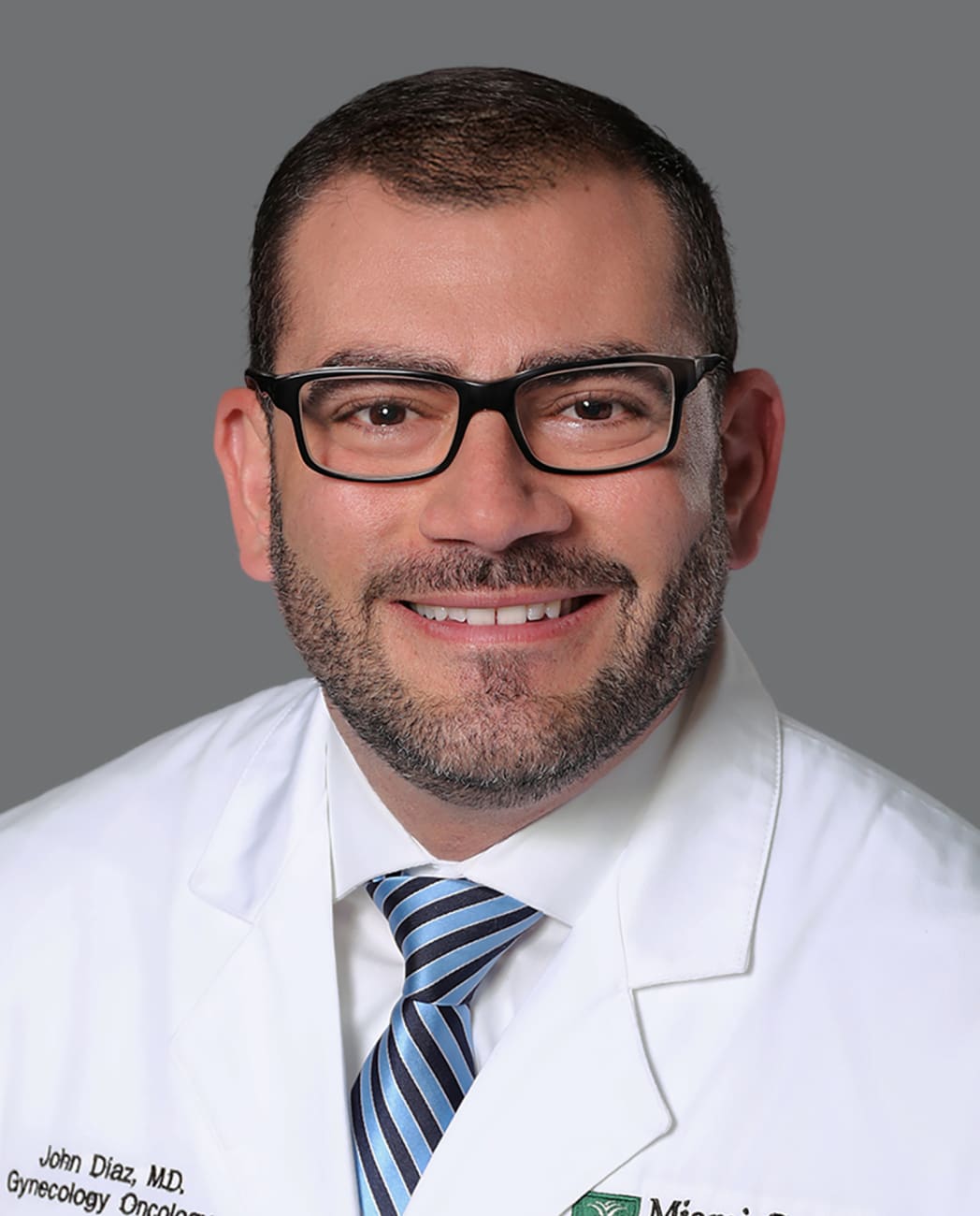

With a poor prognosis for many patients with relapsing gynecological cancers – particularly for those who received conventional treatment only – gynecological oncologists are on the search for novel therapies. Fortunately, today’s newest tools in the battle against cervical, ovarian and endometrial cancer, among others, are extending survival and improving quality of life, giving new hope to physicians and patients.

John P. Diaz, M.D.
Encouraging results from early clinical trials led by John P. Diaz, M.D. , chief of gynecologic oncology at Baptist Health Miami Cancer Institute and medical director of robotic surgery at Baptist Health, have helped quickly advance clinical trials to additional phases and have also resulted in the development of new clinical trials altogether.
Dr. Diaz served as principal investigator at Miami Cancer Institute, for example, of the STRO-002 Phase 1 trial. The study, using antibody drug conjugates or ADCs for women with advanced epithelial ovarian cancer, is moving to Phase 2 soon.
Early data in the STRO-002 trial has resulted in a fast track designation by the FDA. ADCs are also in Phase 1 studies for the treatment of certain patients with metastatic or recurrent endometrial cancer. In addition, investigators are now looking at a trial using the same class of drugs in combination with other targeted therapies such as bevacizumab to treat endometrial cancer.
“This new class of drugs known as ADCs are very promising. Because we’ve probably come as far as we can with traditional chemotherapeutics, and targeted cancer drugs such as PARP inhibitors work best in a specific subset of patients, when we have additional drugs, like ADCs, we are excited.”
The majority of malignant ovarian tumors exhibit an overexpression of FRa, a glycosylphosphatidylinositol (GPI)-anchored cell surface protein. The STRO-002 trial investigated the use of an ADC in this group of patients with platinum-resistant ovarian carcinoma.
“An ADC works almost like a Trojan horse,” Dr. Diaz explained. “In the case of STRO-002, an antifolate receptor binds to the cancer cells. When inside the cancer cell, it releases its payload.”
Patients taking ADCs must be followed very closely due to the potential for ocular toxicities. “We are not used to seeing this with other types of drugs,” he said. “It’s important that patients go to a center with a high patient volume. Most toxicities are mild and very manageable by gynecological oncologists.”
New ovarian cancer cases number just 22,000 a year in the U.S., yet it is the deadliest gynecologic cancer. Some 14,000 new cervical cancer cases are diagnosed each year. The diseases are difficult to treat because they are typically diagnosed in an advanced stage. While chemotherapeutic agents often place patients in remission, the bulk of patients experience recurrence, which is even more challenging to treat.
“It’s extremely important that these patients be seen by a physician who specializes in the treatment of the disease,” Dr. Diaz said. “Many oncologists have limited experience treating gynecologic cancer patients. At Miami Cancer Institute we have the specialists that can offer the latest treatments and the clinical trials to help improve outcomes.” Dr. Diaz helped pioneer fertility-sparing surgery for cervical cancer and sentinel lymph node mapping for gynecologic malignancies – both of which are now standards of care.
To learn more about this topic, join us at the Miami Cancer Institute Women’s Cancer Symposium, April 21, at the Hilton Miami Dadeland. For more information, visit MiamiCancerInstitute.com/WomensCancer.

